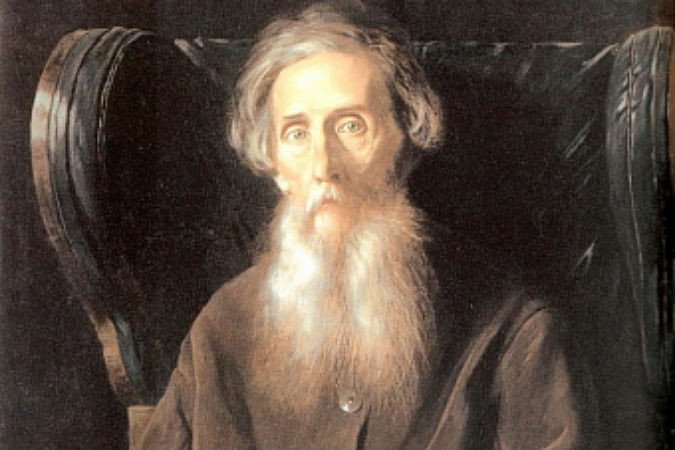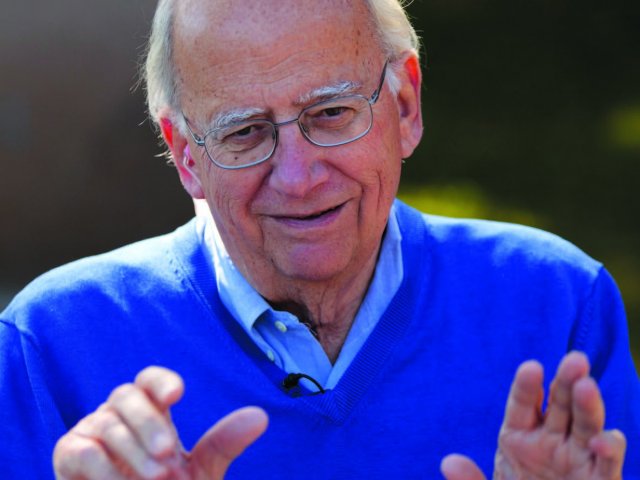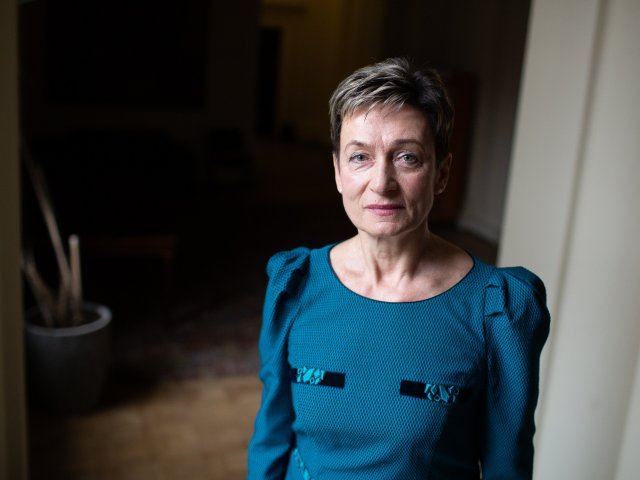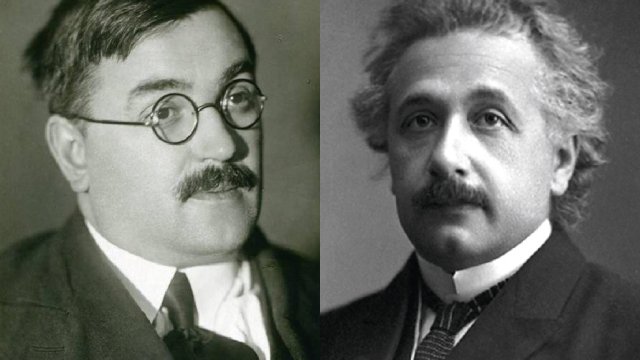Official:
Vladimir Ivanovich Dal. November 10 (22), 1801 – September 22 (October 4), 1872. Russian scientist and lexicographer, compiler of the Explanatory Dictionary of the Living Great Russian Language. Honorary Academician of the St. Petersburg Academy of Sciences.
Life and Work:
1. The Russian philosopher, associate of Peter the Great, Theophan Prokopovich, once argued that those condemned to torment should not be exiled to factories or mines. There is a more terrible work: “...all kinds of torments, this one labor has in itself.” Theophan Prokopovich spoke about creating a dictionary, and these words could well have been signed by Vladimir Ivanovich Dal, who slaved away doing this work for fifty-three years.
2. The eldest son of a Russified Dane and a German woman, he was born in 1801 in the town of Lugansk Factory, which is now called Luhansk. At the time it was a part of the Yekaterinoslav Governorat. Johan Christian von Dahl, who had become Ivan Matveevich in Russia, served there as a doctor of the mining department. Before studying to become a doctor in Jena, the polyglot Ivan Dal served as a court librarian under Catherine the Great. A funny twist of fate: Ivan Dal went from a linguist to a doctor, and his son walked the same path in the opposite direction.
3. In 1814, Ivan Dal was raised to the nobility, and children of the senior doctor of the Black Sea Fleet received the right to study in the Naval Cadet Corps at the state expense.
4. In 1817, during a training voyage, Cadet Dal visited the homeland of his ancestors. He later recalled: “When I sailed to the shores of Denmark, I was greatly interested in the fact that I would see the fatherland of my ancestors, my fatherland. Having stepped on the Danish coast, at first I was finally convinced that my fatherland is Russia, that I have nothing in common with the fatherland of my ancestors.”
5. Dal was not captivated with the naval service on the Black Sea, and then on the Baltic Sea. In addition, it was overshadowed by a scandal: Dal was suspected of writing an epigram on Commander-in-Chief of the Black Sea Fleet Greig, and the young officer spent more than six months under arrest. The court acquitted Dal, but he no longer wanted to serve in Nikolaev and asked for a transfer to Kronstadt.
6. Ultimately, Vladimir Dal still left the naval service and in 1826 entered the Department of Medicine of the University of Dorpat.
7. In 1928, he had to interrupt his studies. The Russo-Turkish war broke out, and the army needed doctors. As P. I. Melnokov-Pechersky wrote in his Memoirs of Vladimir Ivanovich Dal, Dal “with honor passed the exam for a doctor of not only medicine, but also of surgery.”
8. Vladimir Dal’s thesis was titled On Successful Method of Cranial Trepanation and Latent Lesions of Kidneys.
9. Doctor Dal took part in the Russo-Turkish war and in the war with Poland.
10. Melnikov-Pechersky wrote that Dal “...gained fame as a wonderful surgeon and especially as an eye doctor. He has performed more than forty cataract removal surgeries in his lifetime, and all of them were quite successful. It was remarkable that his left arm was as well developed as his right one. He could write with his left hand and do anything else just like with his right hand. Such a fortunate ability was especially useful for him as a surgeon. The most famous surgeons in St. Petersburg invited Dal in cases when the operation could be performed with the left hand better and more conveniently.”
11. Vladimir Dal was fond of homeopathy. In 1838, he wrote and published one of the first articles on homeopathy in Sovremennik.
12. Dr. Dal sat by the bedside of the mortally wounded Pushkin. It is known that the great poet asked Vladimir Ivanovich, “Tell me the truth, will I die soon?” And Dal answered professionally, “We hope for you, we hope, do not despair.”
13. In his Memoirs of Pushkin, Dal wrote, “I have received an expensive gift from Pushkin’s widow: his emerald ring, which he always wore lately and called – I don’t know why – a talisman; from V. A. Zhukovsky, I have received Pushkin’s last clothes, after which they only dressed him before putting in the coffin. This is a black frock coat with a small, nail-shaped hole on the right side. It gives raise to thoughts.”
14. The scientist Dal authored many medical works, as well as textbooks Botany and Zoology. For his collections of flora and fauna, in 1838, Vladimir Dal was elected a corresponding member of the St. Petersburg Academy of Sciences in the Natural Sciences Department.
15. “All my life I have been looking for an opportunity to travel around Russia, to get acquainted with the peoples’ life, honoring the people as the core and root,” Dal wrote. Fate gave him a chance to get to know the Russian Empire. For eight years, Dal served a special assignments official under Orenburg Military Governor V. A. Perovsky, participated in the Khiva campaign of 1839-1840; in 1849-1859, he served as the manager of the Nizhny Novgorod land office, and after retirement he settled in Moscow.
16. Dal signed his works – novellas and short stories – as Cossack from Lugansk. This is how he immortalized his hometown. But such short stories as Saylor’s Leisure, Soldier’s Leisure, novellas Gypsy, Misfit, and Pavel Alekseevich Igrivy, as well as his other almost one and a half hundred novellas and short stories are unknown to the general public. The absolute majority of Russians believe that Vladimir Dal created one single book – the famous Dal dictionary. Well, two at most: the second one being Proverbs of the Russian People.
17. He started working on the dictionary in his remote youth, when after graduation from the corps, the eighteen-year-old midshipman was heading to his place of service in Nikolaev. On the way, a coachman uttered a word he had never heard before: zamolazhivayet. It turned out that the coachman meant that it was getting overcast, the sky was getting covered with clouds. The young sailor wrote down the new word in his notebook. Since then, the notebook had been filled every day.
18. His eight-year service in the Orenburg Province was especially fruitful – there, he traveled a lot and had a chance to listen to the dialect of people from the farthest corners of Russia, as well as Bashkirs, Kalmyks, Tatars.
19. Over the years, Vladimir Dal learned to determine the origin of the person speaking to him by his dialect, starting from the province and, sometimes, up to the city or village – just like Professor Higgins in Pygmalion by Bernard Shaw.
20. Over half a century, Dal wrote down, processed, and provided comments and examples for about two hundred thousand words! “It is time to treasure the folk language and develop an educated language out of it,” he wrote.
21. In his Proverbs of the Russian People, Dal collected 37,000 proverbs. The fate of the book was not easy: in 1853, the censorship banned the publication of the collection. The book was published only in 1862. “The proverb cannot be judged,” Dal commented on the censorship ban.
22. Vladimir Ivanovich Dal was married twice and had five children.
23. Dal knew at least twelve languages, understood Turkic languages, and is considered one of the first Russian turkologists.
24. “Our Magellan who crossed the Russian language from A to Z” – this is how the writer Andrey Bitov called Vladimir Dal.






















